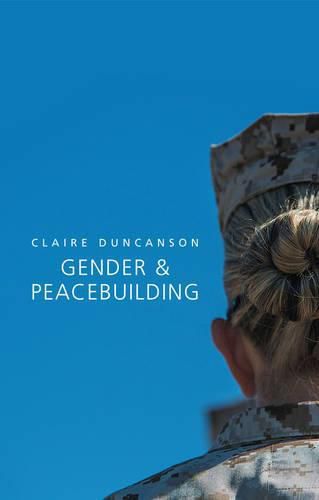Readings Newsletter
Become a Readings Member to make your shopping experience even easier.
Sign in or sign up for free!
You’re not far away from qualifying for FREE standard shipping within Australia
You’ve qualified for FREE standard shipping within Australia
The cart is loading…






Gender and Peacebuilding offers a comprehensive and up to date analysis of how and why gender matters in contemporary peace operations. It draws on a wide range of examples from across the world to offer a nuanced account of the UNAs attempts to mainstream gender into peace operations via Security Council Resolution 1325, and assesses the successes and failures of this effort to enhance the participation and protection of women and girls in peacebuilding operations. In presenting this mixed picture of progress and ongoing challenges, the book argues for bold steps forward that will enable peacebuilding to contest the current neoliberal order, address structural inequalities, and bring about feminist visions of peace and security. It is only by focusing attention on the economic empowerment of women and its ability to temper the dangers of neo-liberalism in post-conflict contexts that feminists can hope to achieve these aims.
Timely, critical and engaged, this book provides an invaluable guide to the issues for students of peace and conflict studies, and sets the agenda for future scholarship and advocacy.
$9.00 standard shipping within Australia
FREE standard shipping within Australia for orders over $100.00
Express & International shipping calculated at checkout
Gender and Peacebuilding offers a comprehensive and up to date analysis of how and why gender matters in contemporary peace operations. It draws on a wide range of examples from across the world to offer a nuanced account of the UNAs attempts to mainstream gender into peace operations via Security Council Resolution 1325, and assesses the successes and failures of this effort to enhance the participation and protection of women and girls in peacebuilding operations. In presenting this mixed picture of progress and ongoing challenges, the book argues for bold steps forward that will enable peacebuilding to contest the current neoliberal order, address structural inequalities, and bring about feminist visions of peace and security. It is only by focusing attention on the economic empowerment of women and its ability to temper the dangers of neo-liberalism in post-conflict contexts that feminists can hope to achieve these aims.
Timely, critical and engaged, this book provides an invaluable guide to the issues for students of peace and conflict studies, and sets the agenda for future scholarship and advocacy.